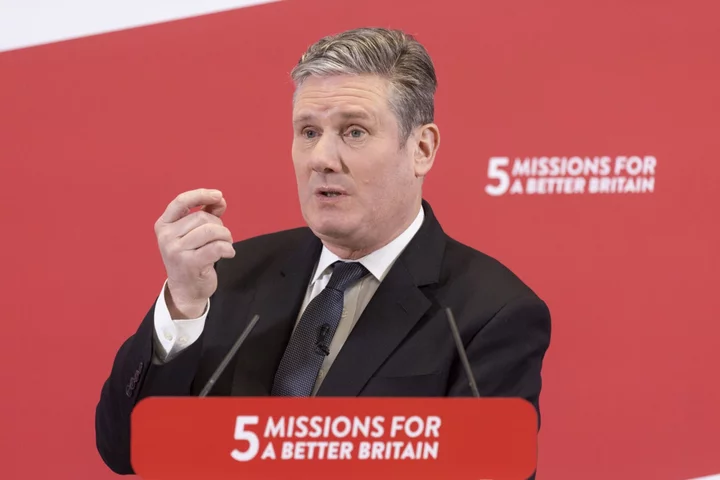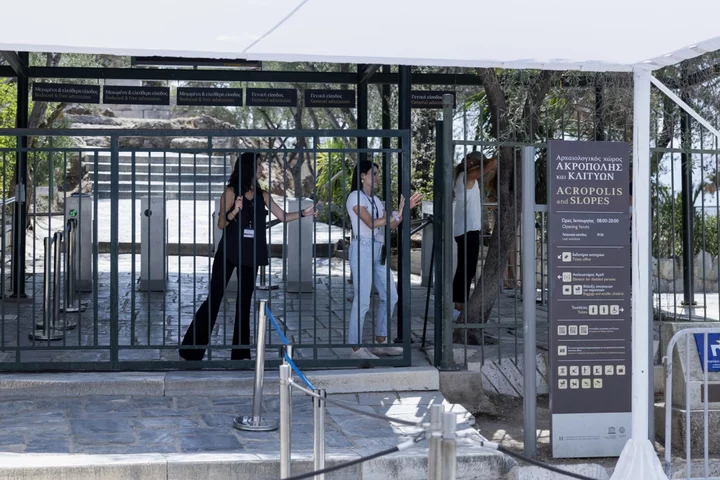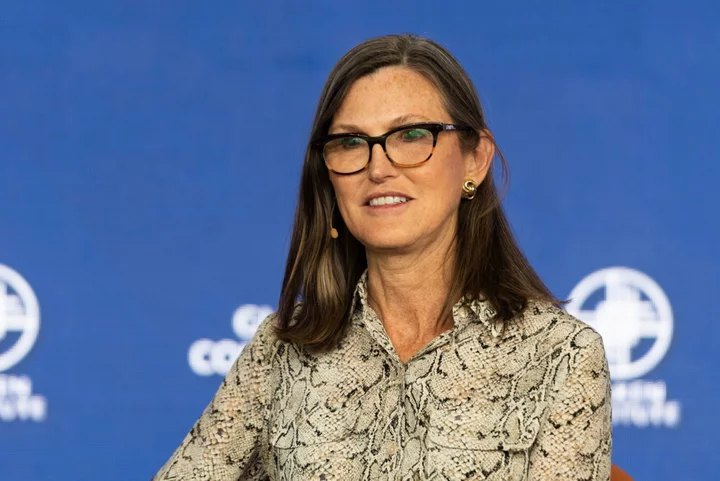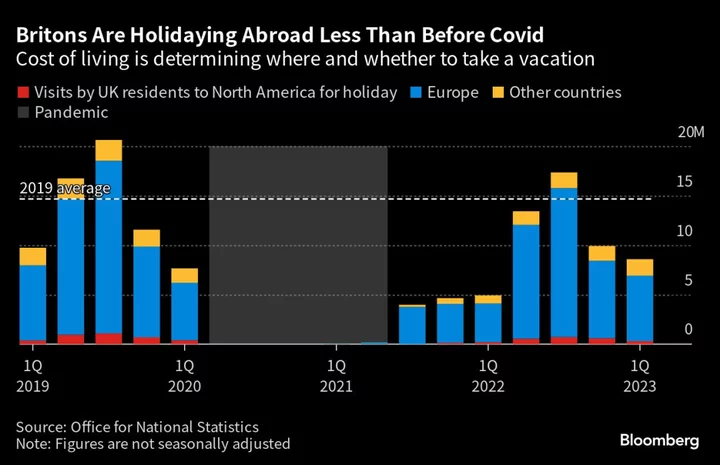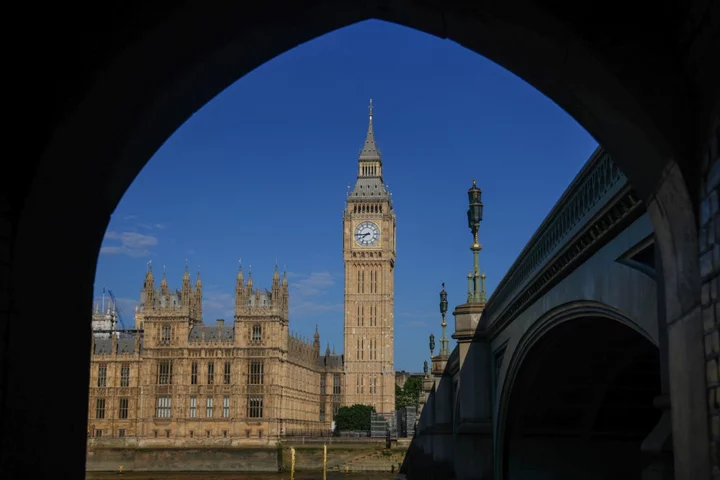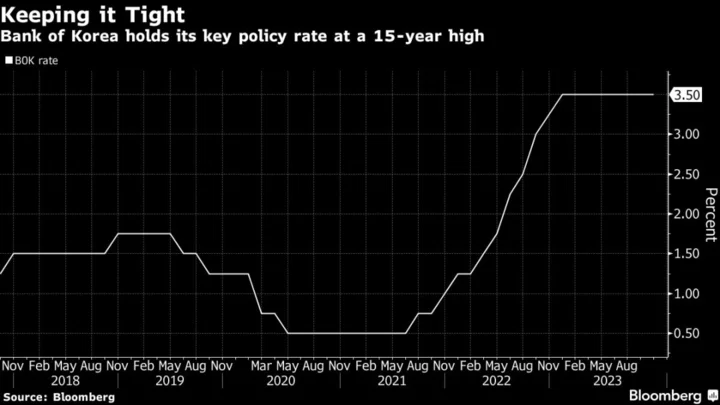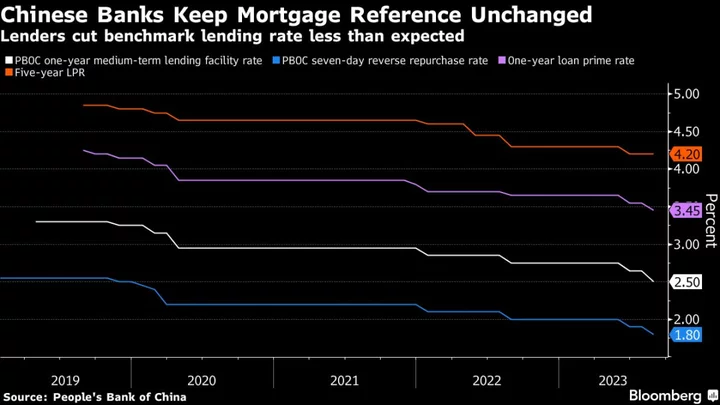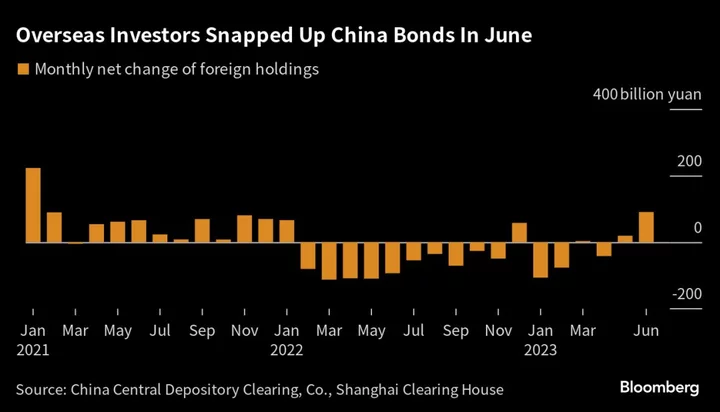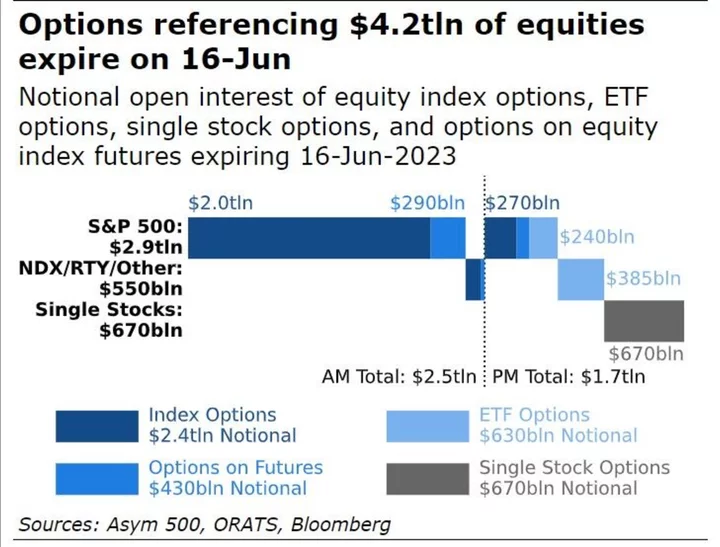Keir Starmer said his his mission to reform the UK Labour Party is an “on steroids” version of Tony Blair’s rebrand of the opposition in the 1990s.
The Labour leader’s current project goes “further and deeper” than when Blair in 1995 rewrote clause four of the party rule book to end its historic commitment to public ownership of key industries, Starmer said on Saturday. That move became emblematic of Blair’s changes that took the party to power again after 18 years in opposition.
“This is about rolling our sleeves up, changing our entire culture – our DNA,” the opposition leader told the Progressive Britain Conference in central London. “This is clause four – on steroids.”
Buoyed by success in last week’s local elections, Starmer is seeking to lead his party to victory in a national vote that’s expected next year, by which time Labour will have been in opposition for 14 years. But Blair himself warned in a Bloomberg TV interview that Starmer shouldn’t be complacent about Labour’s chances even after winning hundreds of council seats as Prime Minister Rishi Sunak’s Conservatives shed more than 1,000.
Based on the local elections, Sky News projected the opposition would win the most seats but fall short of an outright majority. Labour has also been buffeted this week by two claims of sexual misconduct against senior party officials, piling pressure on Starmer to root out bad behavior.
Corbyn
Starmer has been at pains to distance himself from his left-wing predecessor Jeremy Corbyn, in a bid to win support from Conservative voters. He’s already expelled Corbyn from the Parliamentary party and said he can’t stand for Labour at the next election. And by comparing his challenge to Blair’s in the 1990s, he’s likely to further alienate the left wing of the opposition party.
In his speech, Starmer underlined that his vision for Labour is bigger than simply distancing the party from the Corbyn era. “This is about taking our party back to where we belong and where we should always have been, back doing what we were created to do,” he said.
“If you think our job in 1997 was to rebuild a crumbling public realm, that in 1964 it was to modernize an economy overly dependent on the kindness of strangers, in 1945 to build a new Britain, in a volatile world, out of the trauma of collective sacrifice, in 2024 it will have to be all three,” he said.
Under the “New Labour, New Britain” banner, Blair led the Labour Party to three successive spells in government through to 2010. His legacy was, however, sullied by the war in Iraq and years of austerity wrought by the financial crisis.
In his speech, Starmer praised the success of “New Labour, New Britain” and said the Labour Party is now set to govern. “A party once again on the side of working people changing Britain to govern for working people,” he said.
Starmer warned that the Labour Party must not let “progressive politics” become “unmoored from working people’s need for stability, for order, for security.”
“If that sounds conservative, then let me tell you, I don’t care,” Starmer said. “Somebody has got to stand up for the things that make this country great and it isn’t going to be the Tories.”

